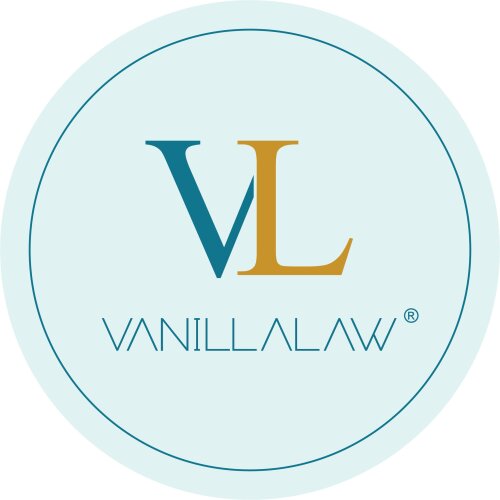Best Corporate Governance Lawyers in Singapore
Share your needs with us, get contacted by law firms.
Free. Takes 2 min.
Or refine your search by selecting a city:
List of the best lawyers in Singapore
About Corporate Governance Law in Singapore
Corporate governance refers to the system of rules, practices, and processes by which a company is directed and controlled. In Singapore, the framework for corporate governance is robust, aiming to promote transparency, accountability, and integrity within businesses. Good corporate governance builds trust among shareholders, investors, regulators, and the public, and is essential for maintaining Singapore's reputation as a leading global financial hub. Laws and codes in Singapore set standards for how companies must be managed, outlining responsibilities for directors and executives, and protecting the interests of stakeholders.
Why You May Need a Lawyer
Engaging a lawyer who specializes in corporate governance is vital in various situations. Common scenarios include:
- Setting up a new company and understanding compliance requirements
- Advising boards and directors on their legal duties and responsibilities
- Drafting and reviewing corporate governance frameworks and policies
- Managing conflicts of interest or related party transactions
- Responding to regulatory investigations or enforcement actions
- Handling shareholder disputes
- Conducting due diligence for mergers, acquisitions, or investments
- Improving risk management and internal controls
- Assisting with disclosures and compliance reporting
A lawyer can help you navigate complex regulations, avoid common pitfalls, and safeguard your company’s reputation and operations.
Local Laws Overview
Singapore’s corporate governance landscape is governed by a mix of statutes, codes, and best practice guidelines. Key aspects include:
- Companies Act: The primary legislation governing all Singapore-incorporated companies. It covers director duties, disclosure obligations, meetings, and reporting requirements.
- Code of Corporate Governance: This is a set of principles and provisions that listed companies on the Singapore Exchange (SGX) must comply with or explain why they do not. It addresses board composition, remuneration, risk management, and stakeholder engagement.
- SGX Listing Rules: For companies listed on the Singapore Exchange, these rules outline disclosure, governance, and continuing obligations.
- Personal Data Protection Act: Sets standards for safeguarding personal data, which ties into risk management and compliance.
- Monetary Authority of Singapore (MAS) guidelines: For financial institutions, MAS issues additional regulations and guidelines on governance and risk controls.
These frameworks collectively ensure that companies operate with accountability, fair treatment of shareholders, transparent reporting, and effective risk management.
Frequently Asked Questions
What is corporate governance and why does it matter?
Corporate governance is the framework of rules and practices that direct and control a company. It matters because it determines how companies meet their objectives, protect stakeholders, and maintain ethical standards.
Who is responsible for corporate governance in a company?
The responsibility mainly falls on the board of directors and senior management. They set the company’s governance policies and ensure compliance with laws and codes.
Is the Code of Corporate Governance legally binding in Singapore?
The Code applies mainly to companies listed on the SGX. It follows a comply-or-explain approach, meaning listed companies must comply with it or explain their reasons for non-compliance in annual reports.
What are directors’ duties under Singapore law?
Directors must act honestly and in the best interests of the company. They are expected to avoid conflicts of interest, act with due care and skill, and not misuse company information or assets.
Are private companies required to follow the same governance codes as public companies?
While some rules, like those in the Companies Act, apply to all companies, the Code of Corporate Governance primarily applies to listed companies. However, private companies are encouraged to adopt good governance practices as appropriate.
What happens if a company fails to comply with corporate governance laws?
Non-compliance can result in regulatory action, fines, disqualification of directors, shareholder lawsuits, or damage to the company’s reputation.
Can shareholders challenge the decisions of directors?
Yes, under certain circumstances. Shareholders may seek legal remedies if directors act outside their powers, breach their duties, or fail to act in the company’s best interests.
How do Singapore companies handle related party transactions?
Related party transactions must be disclosed and, for listed companies, often require shareholder approval depending on the nature and value of the transaction. This is to prevent conflicts of interest and abuse.
What is the role of audit committees in Singapore companies?
For listed companies, audit committees oversee financial reporting, internal controls, and risk management. They play a key role in ensuring integrity and transparency in corporate governance.
How often should a company review its corporate governance policies?
It is good practice to review policies at least annually, or whenever there is a significant change in law, the company’s structure, or business operations.
Additional Resources
The following resources and organizations can be helpful for those seeking more information or legal advice on corporate governance in Singapore:
- Accounting and Corporate Regulatory Authority (ACRA) - regulates business entities and provides guidelines
- Monetary Authority of Singapore (MAS) - oversees financial institutions and issues governance guidelines
- Singapore Exchange (SGX) - provides rules and the Code of Corporate Governance for listed companies
- Law Society of Singapore - directory for finding qualified corporate lawyers
- Singapore Institute of Directors (SID) - offers training and resources on governance best practices
- Government of Singapore websites for updates on the Companies Act and related regulations
Next Steps
If you require legal assistance in corporate governance, consider the following steps:
- Assess your situation and identify the specific governance issue or concern
- Gather relevant documents such as company constitution, board policies, minutes, and regulatory filings
- Contact a lawyer or legal advisor with expertise in Singapore corporate governance
- Prepare questions and clarify your desired outcomes to make the most of your consultation
- Stay informed by visiting the recommended resources and keeping up to date with regulatory changes
Legal support can help protect your organization, ensure compliance, and foster a culture of accountability and transparency.
Lawzana helps you find the best lawyers and law firms in Singapore through a curated and pre-screened list of qualified legal professionals. Our platform offers rankings and detailed profiles of attorneys and law firms, allowing you to compare based on practice areas, including Corporate Governance, experience, and client feedback.
Each profile includes a description of the firm's areas of practice, client reviews, team members and partners, year of establishment, spoken languages, office locations, contact information, social media presence, and any published articles or resources. Most firms on our platform speak English and are experienced in both local and international legal matters.
Get a quote from top-rated law firms in Singapore — quickly, securely, and without unnecessary hassle.
Disclaimer:
The information provided on this page is for general informational purposes only and does not constitute legal advice. While we strive to ensure the accuracy and relevance of the content, legal information may change over time, and interpretations of the law can vary. You should always consult with a qualified legal professional for advice specific to your situation.
We disclaim all liability for actions taken or not taken based on the content of this page. If you believe any information is incorrect or outdated, please contact us, and we will review and update it where appropriate.
Browse corporate governance law firms by city in Singapore
Refine your search by selecting a city.















